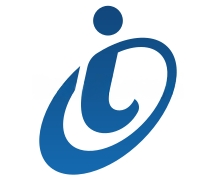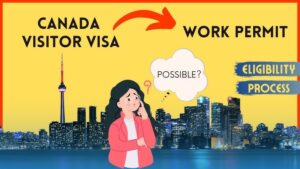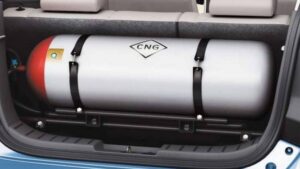
Moving to Canada from Nigeria is an exciting prospect, but following the immigration process can be overwhelming.
As someone who has explored various pathways and understands the challenges, I’m here to guide you through the seven easy ways to make your dream of relocating to Canada a reality.
Understanding the Immigration Landscape
Before looking into the specific ways to move to Canada, it’s important to grasp the immigration landscape. Canada offers various immigration programs, each with its unique requirements and processes.
By understanding these options, you can make an informed decision based on your qualifications and preferences.
Now let discuss the topic:
7 Easy Ways to Move to Canada from Nigeria
- Express Entry System
The Express Entry system is one of the most popular pathways for skilled workers. It assesses candidates based on factors like age, education, work experience, and language proficiency.
Achieving a high Comprehensive Ranking System (CRS) score increases your chances of receiving an Invitation to Apply (ITA) for permanent residence.
- Provincial Nominee Programs (PNPs)
Provincial Nominee Programs allow Canadian provinces and territories to nominate individuals who meet their specific labor market needs.
Exploring PNPs is a strategic move, as each province has its unique criteria. By aligning your skills with a province’s demands, you can increase your chances of being nominated.
- Study in Canada and Work
Pursuing education in Canada is not only a valuable experience but also a pathway to permanent residency. By enrolling in a Canadian institution, you can obtain a study permit and gain valuable work experience through co-op programs. Post-graduation work permits provide an excellent opportunity to transition to permanent residency.
- Family Sponsorship
If you have family members who are Canadian citizens or permanent residents, they can sponsor you for immigration. The Family Class Sponsorship program facilitates the reunification of families, allowing you to join your loved ones in Canada.
- Caregiver Program
The Caregiver Program is designed for individuals with experience in caring for children, the elderly, or individuals with medical needs. By meeting the program’s requirements, you can apply for permanent residency and contribute to Canada’s caregiving sector.
- Atlantic Immigration Pilot Program (AIPP)
The AIPP focuses on the Atlantic provinces – New Brunswick, Newfoundland and Labrador, Nova Scotia, and Prince Edward Island. This employer-driven program connects skilled immigrants with job opportunities in the Atlantic region, enhancing your chances of settling in this picturesque part of Canada.
- Quebec Immigration Programs
Quebec has its immigration selection process due to its unique cultural and linguistic identity. Exploring the Quebec Skilled Worker Program or other provincial programs in Quebec can be a distinct route to permanent residency.
Steps on How to Migrate to Canada from Nigeria
Now that we’ve explored the seven easy ways to move to Canada, let’s break down the general steps involved in the immigration process:
- Research and Choose the Right Pathway
Dive deep into the details of each immigration program to identify the one that aligns with your skills, qualifications, and preferences. Thorough research ensures you make an informed decision.
- Gather Documentation
Compile all necessary documents, including educational certificates, work experience letters, language proficiency test results, and other supporting materials. Having a comprehensive set of documents will streamline the application process.
- Language Proficiency
Most immigration programs require proof of language proficiency in English or French. Take language proficiency tests such as IELTS or CELPIP for English and TEF for French, and ensure you meet the minimum requirements.
- Educational Credential Assessment (ECA)
If you’re applying through Express Entry or other programs that consider educational qualifications, get your credentials assessed by designated organizations. This step validates the equivalence of your foreign education in the Canadian context.
- Create an Express Entry Profile or Apply to PNP
For Express Entry, create an online profile on the Immigration, Refugees, and Citizenship Canada (IRCC) website. If you’re applying through a Provincial Nominee Program, submit your application to the respective province or territory.
- Wait for Invitation and Apply for Permanent Residence
If you’re in the Express Entry pool and receive an Invitation to Apply (ITA), submit your application for permanent residence within the specified timeframe. For other programs, follow the instructions provided by the respective immigration authorities.
- Medical Examination and Security Clearance
Upon receiving an ITA, undergo a medical examination from an approved panel physician. Additionally, provide the necessary police certificates to prove your good character and security clearance.
- Arrival in Canada
Once your application is approved, it’s time to plan your relocation. Make arrangements for your travel to Canada, and upon arrival, complete the necessary landing procedures to officially become a permanent resident.
related article 12 EUROPEAN COUNTRIES THAT WILL PAY YOU TO LIVE THERE
How Much Will It Cost to Relocate to Canada from Nigeria? A Budget-Friendly Guide
we’ll break down the entire process of relocating to Canada, provide estimated costs, and give you a clear timeline to help you prepare for this life-changing journey.
1. Initial Research and Decision-Making
Before diving into the financial aspects, take some time to research the various immigration pathways and decide on the one that best suits your qualifications and preferences. Understanding the process will empower you to make informed decisions.
2. Application Fees and Documentation
Every immigration pathway involves application fees. These fees vary depending on the specific program you choose. Additionally, budget for the costs associated with obtaining necessary documents such as language proficiency test results, educational credentials assessment, and police certificates. On average, these initial costs can range from $1,000 to $3,000 USD.
3. Language Proficiency Tests
Most immigration programs require proof of language proficiency in either English or French. Allocate funds for language proficiency tests like IELTS CELPIP (English) or TEF (French). Costs for these tests typically range from $200 to $300 USD.
4. Educational Credential Assessment (ECA)
If your immigration pathway considers educational qualifications, you’ll need to undergo an Educational Credential Assessment (ECA) to validate your foreign education in the Canadian context. ECA fees usually range from $200 to $300 USD.
5. Express Entry Profile Creation
For those opting for the Express Entry system, creating an online profile is a crucial step. While the process is free, it’s essential to account for any professional assistance you may seek, which could cost an additional $500 to $1,500 USD.
6. Provincial Nominee Programs (PNPs) Application Fees
If you choose a Provincial Nominee Program, factor in the application fees specific to the province you are applying to. These fees can vary but generally range from $500 to $2,000 USD.
7. Medical Examination and Police Clearance
Once you receive an Invitation to Apply (ITA), you’ll need to undergo a medical examination and obtain police clearance certificates. Budget approximately $300 to $500 USD for these essential steps.
8. Permanent Residence Application Fees
When you’re ready to apply for permanent residence after receiving an ITA, you’ll encounter additional fees. For the Express Entry system, the primary applicant’s fee is around $825 USD, with additional fees for accompanying family members.
Estimated Total Cost: $3,500 to $10,000 USD
Keep in mind that these estimates are rough averages and can vary based on individual circumstances. The total cost includes application fees, language tests, educational assessment, medical exams, and police certificates.
Timeline for Relocation
The timeline for relocating to Canada can vary depending on the immigration pathway and individual circumstances. On average:
- Initial Research and Decision-Making: 1-3 months
- Application and Documentation: 3-6 months
- Express Entry Pool or PNP Nomination: 6-12 months
- Permanent Residence Application Processing: 6-12 months
Total Estimated Time: 18-36 months
It’s important to note that these timelines are general estimates and can be subject to change based on immigration policy updates and individual case complexities.
Relocating to Canada is an exciting journey that requires careful financial planning and an understanding of the immigration process.
By breaking down the costs and timelines, you can approach your move with confidence, knowing what to expect at each stage. Remember, these estimates are guidelines, and actual costs may vary. Good luck!
What Makes You Eligible for Canadian Permanent Residence?
Becoming a Canadian permanent resident is a dream for many, offering numerous benefits such as the ability to live and work anywhere in Canada, access to healthcare and social services, and the potential to apply for Canadian citizenship. However, obtaining permanent residence status involves meeting specific requirements and following a structured process. In this article, we will explore the requirements for Canadian permanent residence, how to determine if you are eligible, the fees involved, and the necessary documents.
Requirements for Canadian Permanent Residence
To be eligible for Canadian permanent residence, applicants must meet specific requirements, which vary depending on the immigration program they are applying under. The most common pathways include the Express Entry system, Provincial Nominee Program (PNP), and Family Sponsorship. Here are the general requirements for each:
1. Express Entry System
The Express Entry system manages applications for three federal economic immigration programs:
a. Federal Skilled Worker Program (FSWP)
- Work Experience: At least one year of continuous full-time or equivalent part-time skilled work experience within the last ten years.
- Language Proficiency: Minimum Canadian Language Benchmark (CLB) 7 in English or French.
- Education: A minimum of a secondary diploma. Higher education levels can earn more points.
- Proof of Funds: Sufficient funds to support yourself and your family in Canada.
- Other Factors: Age, adaptability, and a valid job offer can contribute to higher points.
b. Federal Skilled Trades Program (FSTP)
- Work Experience: At least two years of full-time work experience in a skilled trade within the last five years.
- Language Proficiency: Minimum CLB 5 in speaking and listening, and CLB 4 in reading and writing.
- Job Offer or Certification: A valid job offer of full-time employment for at least one year or a certificate of qualification in that skilled trade issued by a Canadian provincial, territorial, or federal authority.
- Proof of Funds: Sufficient funds to support yourself and your family in Canada.
c. Canadian Experience Class (CEC)
- Work Experience: At least one year of skilled work experience in Canada within the last three years.
- Language Proficiency: Minimum CLB 7 for NOC 0 or A jobs, and CLB 5 for NOC B jobs.
- Education and Proof of Funds: Not required.
2. Provincial Nominee Program (PNP)
Each province and territory has its own PNP streams, targeting specific skills and occupations. General requirements include:
- Nomination: A nomination from a Canadian province or territory.
- Work Experience: Varies by province and stream.
- Language Proficiency: Varies by province and stream.
- Proof of Funds: Sufficient funds to support yourself and your family.
- Intent: Genuine intention to live in the nominating province or territory.
3. Family Sponsorship
Canadian citizens and permanent residents can sponsor eligible family members for permanent residence. Requirements include:
- Sponsor Eligibility: Must be at least 18 years old, living in Canada, and meet income requirements.
- Sponsored Person Eligibility: Must be a spouse, common-law partner, dependent child, parent, or grandparent of the sponsor.
- Proof of Relationship: Documents proving the family relationship.
- Financial Support: Sponsor must commit to financially support the sponsored person.
How to Know If You Are Eligible
Determining your eligibility for Canadian permanent residence involves assessing your profile against the specific requirements of the immigration program you are interested in. Here are the steps to help you evaluate your eligibility:
1. Self-Assessment
Conduct a self-assessment based on the requirements listed above. Consider factors such as your work experience, language proficiency, education, and available funds.
2. Comprehensive Ranking System (CRS) Score
For Express Entry candidates, calculate your CRS score using the CRS calculator available on the official Immigration, Refugees and Citizenship Canada (IRCC) website. Your score must meet or exceed the cut-off score for the Express Entry draws.
3. Provincial Nominee Programs (PNPs)
Research the specific requirements of the PNPs of interest. Each province has different streams and criteria. Check the official websites of the provinces for up-to-date information.
4. Family Sponsorship
Ensure you and your sponsor meet the eligibility requirements for the Family Sponsorship program. Gather the necessary documents to prove your relationship and financial support.
5. Use of Consultants
If you are unsure about your eligibility or need assistance, consider consulting with a licensed immigration consultant or lawyer who can provide professional advice and help you navigate the application process.
Fees Involved in Applying for Canadian Permanent Residence
Applying for Canadian permanent residence involves various fees. These fees can vary depending on the immigration program and the number of family members included in the application. Here is a breakdown of the common fees:
1. Express Entry Fees
- Processing Fee: CAD 850 per adult applicant.
- Right of Permanent Residence Fee (RPRF): CAD 515 per adult applicant.
- Dependent Child Fee: CAD 230 per child.
- Educational Credential Assessment (ECA): CAD 200–300, depending on the designated organization.
- Language Tests: CAD 300 for IELTS or CELPIP.
- Medical Exam: CAD 200–300 per person.
- Police Certificates: Varies by country.
2. Provincial Nominee Program (PNP) Fees
- Provincial Application Fee: Varies by province, typically ranging from CAD 250 to CAD 1,500.
- Federal Processing Fee: CAD 850 per adult applicant.
- Right of Permanent Residence Fee (RPRF): CAD 515 per adult applicant.
- Dependent Child Fee: CAD 230 per child.
3. Family Sponsorship Fees
- Sponsorship Application Fee: CAD 75.
- Processing Fee: CAD 475 per adult applicant.
- Right of Permanent Residence Fee (RPRF): CAD 515 per adult applicant.
- Dependent Child Fee: CAD 150 per child.
- Biometrics Fee: CAD 85 per person or CAD 170 per family.
Documents Needed for Canadian Permanent Residence
The documents required for Canadian permanent residence applications vary depending on the immigration program. Here is a general list of the documents you may need:
1. Identification and Civil Status Documents
- Passport: Valid passport for each family member included in the application.
- Birth Certificate: For all applicants.
- Marriage Certificate: If applicable.
- Divorce or Death Certificate: If applicable.
- Adoption Papers: If applicable.
2. Education Documents
- Educational Credential Assessment (ECA) Report: For Express Entry applicants.
- Academic Transcripts: Copies of transcripts and diplomas/degrees.
3. Work Experience Documents
- Employment Reference Letters: From current and previous employers detailing your job title, duties, duration of employment, and salary.
- Pay Stubs or Tax Returns: To support your work experience.
4. Language Proficiency Documents
- Language Test Results: IELTS, CELPIP, or TEF results.
5. Proof of Funds
- Bank Statements: Showing sufficient funds to support yourself and your family.
- Proof of Assets: If applicable.
6. Police Certificates
- Police Clearance Certificates: From all countries where you have lived for six months or more since the age of 18.
7. Medical Exam
- Medical Examination Report: From an IRCC-approved panel physician.
8. Other Documents
- Photographs: Recent passport-sized photos of all applicants.
- Biometrics: If required, submit biometrics (fingerprints and photo).
Conclusion
Moving to Canada from Nigeria is an achievable goal, and with the right approach, you can make the process smoother. Whether you choose the Express Entry system, Provincial Nominee Programs, or other pathways, careful planning and adherence to the outlined steps will increase your chances of a successful relocation.
Remember, each journey is unique, so tailor your strategy to fit your individual circumstances and aspirations. Good luck on your Canadian adventure







Thank you for your sharing. I am worried that I lack creative ideas. It is your article that makes me full of hope. Thank you. But, I have a question, can you help me?